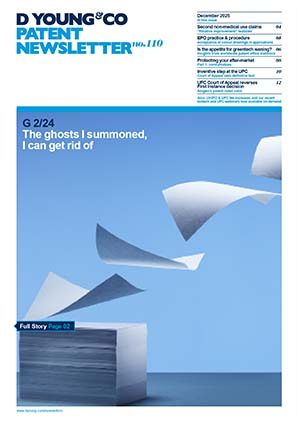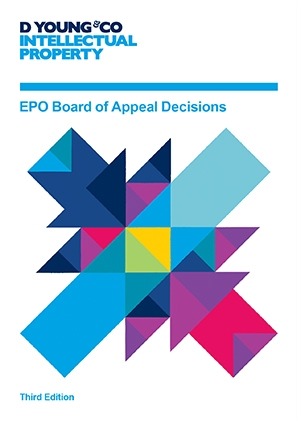Unified Patent Court and unitary patent: end of the road or just another bump?
At the end of March 2020, EPO President Campinos pronounced strong support for the statement by the German Minister of Justice and Consumer Protection, Christine Lambrecht, of her intention to remedy the deficiencies in the legislative procedure which led to the German Federal Constitutional Court (FCC) declaring the agreement by the German Parliament (Bundestag) of the Unified Patent Court and the Unitary Patent (UPCA) to be void. So was that just another bump in the road for the UPCA?
The Unified Patent Court and the Unitary Patent Agreement (UPCA) was agreed in 2013 and enough countries had ratified the agreement for it to come into existence, that is, if Germany had ratified. Of course the concept of the UPCA is even older than the European Patent Convention; the UPCA being its latest incarnation.
Even after the Brexit vote in 2016, the UK Government under Prime Minister May ratified the UPCA in 2018, perhaps encouraged by a legal opinion obtained by the Chartered Institute of Patent Attorneys (CIPA) that the UPCA was an international treaty and therefore open to the UK after Brexit. Then came a complaint in 2017 filed by a private citizen to the German Federal Constitutional Court (FCC) that the vote in the Bundestag violated the constitutional rights of German citizens.
In March 2020 the FCC ruled partially in favour of the complaint that the vote in the Bundestag in 2016 for Germany to adopt the UPCA was unconstitutional and therefore void. The Bundestag requires a majority of two thirds of its members to adopt an Act affecting the constitutional rights of German citizens. According to the FCC, although those members of the Bundestag present at the time voted unanimously to adopt the UPCA, the formal requirement for a majority of two thirds of the members of the Bundestag had not been satisfied. However there is some nuance in respect of the analysis and the conclusion in reaching this decision by the FCC, which would appear to have wider ramifications.
In reaching this conclusion the FCC determined that the UPCA was only open to member states of the European Union because it establishes a common court of the contracting member states and therefore the UPCA confers powers from the member states to the court. It does not matter that not all member states of the EU have agreed the UPCA (Spain and a Poland did not agree), because the aim of the UPCA was to provide further EU integration and enhance the single market. As such, one conclusion of the FCC’s reasoning is that the UK can no longer be a party to the UPC after Brexit, which seems contrary to the opinion obtained by CIPA.
In a further twist, on 08 June 2020, the Federal Ministry of Justice issued an invitation for comment on a draft bill of the UPCA Approval Act, which aims to repeat the vote in the Bundestag before September 2021. It also issued an explanatory note which appears to suggest that if Germany voted to adopt the UPCA, then the UPC would come into effect because currently the UK has ratified the UPCA, regardless of whether the UK later withdraws. It also suggested that, as a non-EU member, the UK could not host a division of the central court in London, and as a temporary measure the functions of that division would be adopted by the other central divisions in Paris and Munich.
The UK Government appears to have ended the UK’s participation in the UPCA notwithstanding the UK’s ratification. However, is the UPCA even viable without the UK, being with Germany one of the industrial nations which has shaped IP law in Europe? The UK represents about 17% of the total GDP of the European Union, compared with France 14% and Germany 20% (these obviously vary). A typical European patent in the mechanical and electronics field designates Germany, France and the UK, which represents over 50% of the GDP and the population of the EU. The attraction of the UPCA is that it would be possible to obtain injunctive relief across all of the designated states of a European patent from a decision of one court, and with a unitary patent it would be possible to obtain an injunction across all member states. This could represent a value which would rival the mighty US patent. However, without the UK there is clearly a loss of value in any unitary patent. Furthermore losing in one court would be a loss in all states, which was part of the rationale for some companies to opt out of the UPC during the transitional period. With the UK not part of the UPCA, enforcement of a European patent with the above designations would require separate actions in the UK and UPC (for Germany and France) which would certainly lead to greater complexity and cost.
One thing is perhaps self-evident; the UPCA is more likely to be a success if the UK were to remain an active member.


